Israel Urges IAEA To Make Iran Pay As General Threatens To Raze Tel Aviv, Haifa
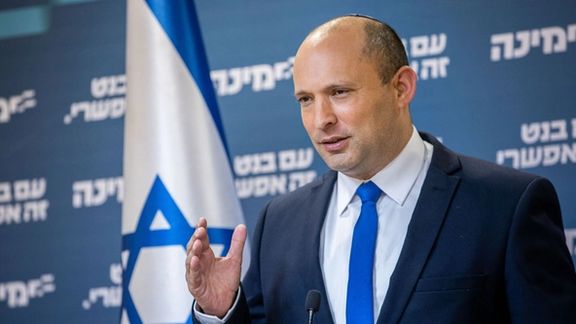
As the International Atomic Energy Agency Board of Governors convenes in Vienna, the Israeli premier has called on the watchdog to put pressure on Iran.

As the International Atomic Energy Agency Board of Governors convenes in Vienna, the Israeli premier has called on the watchdog to put pressure on Iran.
Addressing the Knesset’s Foreign Affairs and Defense Committee on Tuesday, Naftali Bennett said, “We expect the IAEA Board of Governors to place a clear warning light in front of the regime in Tehran, and make it clear that if it continues in its defiant nuclear policy, it will pay a heavy price.”
Bennet said Israel has "shifted gear" when it comes to Iran, describing last year as a “turning point” in Israel’s policy against the Islamic Republic.
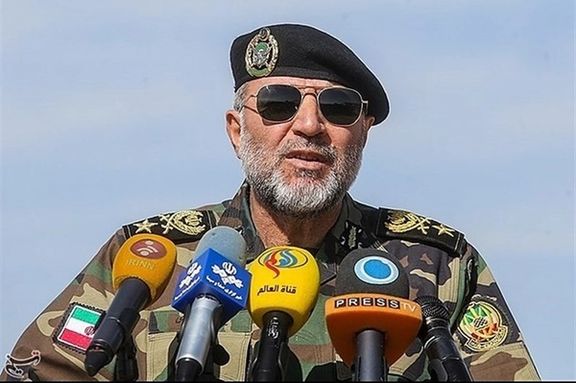
Earlier in the day, the commander of the Iranian Army’s Ground Force Brigadier General Kioumars Heydari warned that “By the order of the Supreme Leader, we will raze Tel Aviv and Haifa to the ground for any mistake made by the enemy.”
Bennett’s comments came as the board started a five-day meeting in Vienna on Monday and is expected to vote on a resolution, drafted by Britain, France, Germany, and the United States to censure Iran for the first time since June 2020, urging Tehran to “cooperate fully” with the UN agency.
Reuters news agency reported that the draft resolution says the board "expresses profound concern that the safeguards issues related to these three undeclared locations remain outstanding due to insufficient substantive cooperation by Iran…[and] calls upon Iran to act on an urgent basis to fulfil its legal obligations.”
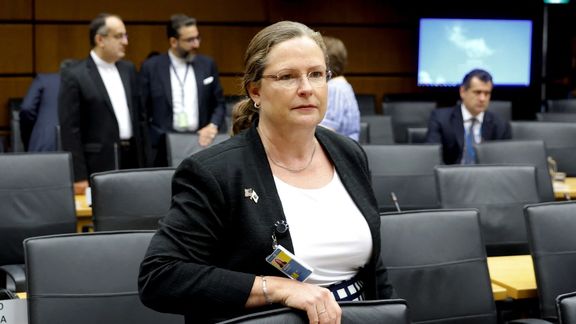
A US and European draft resolution at the UN nuclear watchdog is mildly critical of Tehran but may further sour talks on reviving the 2015 Iran nuclear deal.
A vote is expected at the 35-member board of the United Nations’ International Atomic Energy Agency (IAEA), meeting in Vienna, Wednesday evening or Thursday morning. The resolution from the United States, France, Germany, and the United Kingdom does not seek to refer Iran to the UN Security Council over its failure to satisfy the agency over uranium traces found at three sites.
Reuters news agency reported that the draft resolution said the board "expresses profound concern that the safeguards issues related to these three undeclared locations remain outstanding due to insufficient substantive cooperation by Iran…[and] calls upon Iran to act on an urgent basis to fulfil its legal obligations and, without delay, take up the (IAEA) director general’s offer of further engagement to clarify and resolve all outstanding safeguards issues."
Mikhail Ulyanov, Russia’s ambassador to the IAEA, tweeted that “for unknown reasons” the US and ‘E3’ “believe that a resolution is the best way to address outstanding safeguards issues,” which Ulyanov called “extremely doubtful.”
As a signatory of the Nuclear Non-Proliferation treaty (NPT), Iran is required to satisfy the IAEA though ‘safeguards’ that its nuclear work is peaceful. Rafael Mariano Grossi, IAEA director general, told the agency’s quarterly board meeting Monday that he was unable to certify this after what he regards as unsatisfactory answers from Iran over uranium traces found by inspectors.
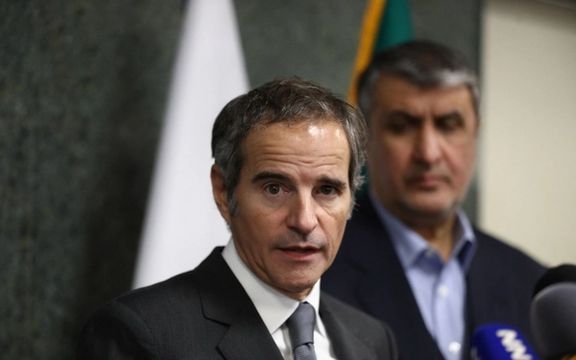
Tehran has downplayed the significance of the uranium traces, which relate to work carried out before 2003, and insisted it has given complete answers. Iran – backed by Russia and China – has argued that ‘technical’ issues of nuclear monitoring, including the ‘safeguards’ issues of pre-2003 work, should be kept distinct from the ‘political’ task of negotiating revival of the 2015 nuclear deal, the JCPOA (Joint Comprehensive Plan of Action).
Reacting to news of the resolution, Vahid Jalalzadeh, chairman of the Iranian parliament’s foreign policy committee, reportedly said the passing of the resolution would lead Iran to reconsider its role in the JCPOA talks.
This followed Iranian Foreign Minister Hossein Amir-Abdollahian tweeting Sunday: "Those who push for anti-Iran resolution at IAEA will be responsible for all the consequences.”
‘Insignificant’ uranium traces
Kazem Gharibabadi, Iran’s IAEA ambassador 2018-21, told state broadcaster IRIB Monday that the agency had established that the “insignificant” traces had come from “one of the countries with nuclear weapons.”
“The agency itself informed us that this uranium was of the type…is from one of the counties with nuclear weapons, not because it is used in nuclear weapons, but because of its origin,” he said.
The IAEA has long investigated Iran’s nuclear work before 2003, when many analysts believed it imported equipment from Pakistani nuclear scientist AQ Khan that might previously have been used to enrich uranium.
But Gharibabadi added to the mystery with a suggestion that “when Esfahan steel was commissioned before the [1979] Revolution, one of these countries was active there.”
While the pre-2003 IAEA probes were given less prominence after the JCPOA, they have re-emerged in part because of documents from 2004-5 released by Israel purporting to show Iran using purloined IAEA files to hoodwink nuclear inspectors.
With Tehran since 2021 restricting its cooperation with the agency to little more than the basic level required under safeguards, the US and the ‘E3’ have increasingly treated the matter as an important issue of transparency.
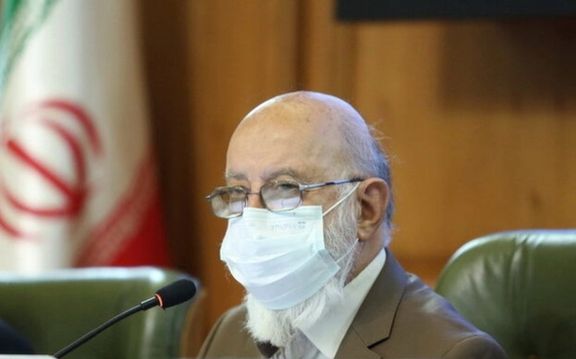
The chairman of Tehran’s city council says that last week cyberattack was carried out by Mossad, the Mujahedin-e-Khalq (MEK), and all forces against the Islamic revolution.
Mehdi Chamran made the remarks on Tuesday in reference to the Thursday attack that deactivated over 5,000 surveillance cameras and 150 websites and online services of Tehran Municipality. An Iranian hacktivist group named ‘Uprising till Overthrow' took responsibilty.
“Detailed planning was carried out by the Mossad and the “hypocrites” and the cooperation of the two with all the counterrevolutionaries and those who oppose the Islamic Republic,” he said. Iranian officials always refer to the exiled MEK as 'hypocrites'.
His comments came as most of the services are still offline and the authorities have warned all municipal employees against turning on their systems, suggesting that the municipality has not yet figured out how their systems were breached.
During the same session, Asghar Ghaemi, a member of the Council, said, "We should apologize to the people of Tehran for this cyberattack,” expressing hope that the damages to the municipality will be compensated and services will be back online.
The hacktivist group, reportedly affiliated with the MEK, put photos of the leaders of the group Massoud and Maryam Rajavi as well as insults at Khomeini, Supreme Leader Ali Khamenei, and President Ebrahim Raisi on the websites of Tehran Municipality. The MEK released a video clip showing the websites defaced with a graphic with an image of Khamenei with a red 'X' over his face, while calling for an “uprising until overthrow.”
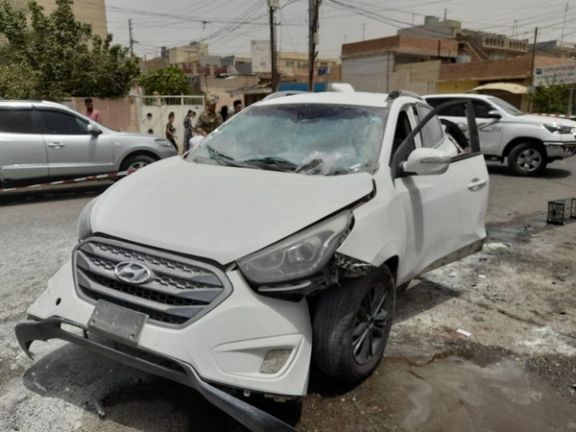
A senior member of the Organization of the Iranian Kurdistan Struggle has accused the Islamic Republic of being behind an assassination attempt on fellow fighter Akbar Sanjabi.
Shoresh Haji, a member of the governing committee of the opposition group – known as Khabat that is the Kurdish word for "struggle" -- told Iran International on Tuesday that the former political prisoner, 49, was injured when a bomb that was attached to his car detonated in Erbil, the capital of the Kurdistan Region in Iraq on Monday.
He called the attack a terrorist act, and called on the Iraqi Kurdistan Region security agencies to conduct an extensive investigation into the assault.
The political activist, who was severely injured in the left leg and was taken to Erbil’s Emergency Medical Center, had been sentenced to life in prison by Iranian authorities for membership in the Albania-based opposition group Mujahedin-e-Khalq (MEK) organization. While on a temporary leave, Sanjabi left the country and settled in Erbil.
In 2021, two political activists and members of the Kurdistan Free Life Party (PJAK) and the Democratic Party of Iranian Kurdistan (KDPI), Behrouz (Rebin) Rahimi and Musa Babakhani, were assassinated in the cities of Sulaimaniyah and Erbil.
Although the Islamic Republic has not claimed responsibility for any of these assassinations, their respective parties have blamed the Iranian government for the attacks.

Addressing the board of the UN nuclear agency Monday, Rafael Mariano Grossi, the agency chief, reiterated criticism of Iran’s cooperation in his recent report.
France, Germany, the United Kingdom, and the United States have been discussing a possible resolution censuring Tehran at the quarterly board meeting of the International Atomic Energy Agency, while China and Russia have warned this could upset negotiations over reviving the 2015 Iran nuclear agreement.
The most contentious part of Grossi’s report referred to the discovery of uranium traces at three sites in Iran linked to nuclear work carried out before 2003.
“Iran has not provided explanations that are technically credible in relation to the Agency’s findings at three undeclared locations in Iran,” he said. “Nor has Iran informed the Agency of the current location, or locations, of the nuclear material and/or of the equipment contaminated with nuclear material, that was moved from Turquzabad in 2018.”
Grossi told the board – which meets from today until June 10 – that he could not confirm Iran’s adherence to its ‘safeguards agreement’ as a signatory of the Nuclear Non-Proliferation treaty “unless and until” Tehran provided “technically credible explanations for the presence of uranium particles of anthropogenic origin at Turquzabad, Varamin and ‘Marivan’ and informs the Agency of all current locations of the nuclear material and/or of the contaminated equipment.”
While these issues do not directly relate to talks to restore the 2015 agreement, the JCPOA (Joint Comprehensive Plan of Action), they are seen by the US and three European states as a crucial issue of Iran’s credibility.
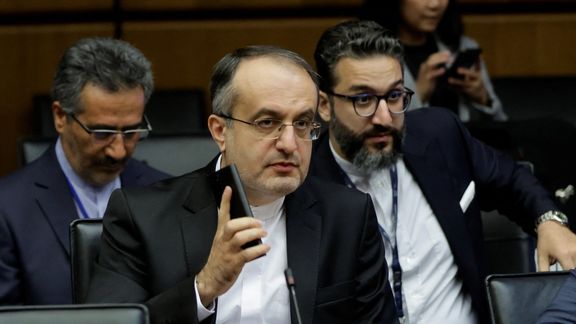
‘Technical’ issues
Iran quickly rejected Grossi’s speech to the agency board. Foreign Ministry spokesman Saeed Khatibzadeh said the IAEA chief had made a “hurried response” with his report. “We had planned a third round of discussions but he didn’t wait,” the spokesman said, adding that any resolution would “impact negatively on cooperation with the IAEA and on the nuclear talks.”
Mohammad Eslami, head of the Atomic Energy Agency of Iran, told al-Jazeera television that Iran had given “very precise answers” to the IAEA. According to an agreement reached by Grossi in early March, Tehran was required to give written replies by March 20 and satisfy the agency over any queries by June 21.
Iran, China and Russia have all argued that questions arising from Iran’s pre-2003 nuclear work are ‘technical’ and should not derail ‘political’ efforts to revive the JCPOA, from which President Donald Trump withdrew the US in 2018, imposing ‘maximum pressure’ sanctions that prompted Iran after 2019 to expand its nuclear program beyond JCPOA limits.
Majority vote
While in the past welcoming the ‘technical’ role of the IAEA, Tehran criticized last week’s trip by Grossi to Israel, which is not an NPT signatory and which is the only nuclear-armed Middle East state. Iran’s English-language outlet Press TV accused Grossi and Israeli prime minister Naftali Bennett of “collusion,” and contrasted Israel’s secret nuclear arsenal with Iran facing extensive IAEA inspections.
Any vote at the IAEA board on a resolution critical of Iran will be made by a simple majority of the 35 members, but a referral to the United Nations Security Resolution would be in different circumstances to 2005-6 when Russia and China voted for international sanctions at the UNSC.
Grossi told the board the IAEA was open to continued dialogue with Iran to resolve all issues. “As in the past, and in order for the agency to be in a position to provide assurance that Iran’s nuclear program is exclusively peaceful, the agency remains ready to re-engage without delay with Iran to resolve these matters,” he said.
Grossi told a press briefing: “These issues will not go away.”
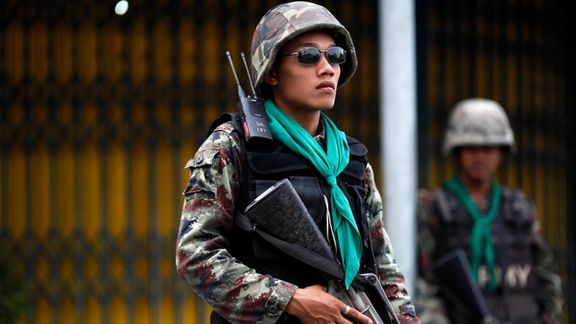
Following warnings that Iran was planning attacks on Israeli citizens in various parts of the world, Thailand’s police have are on high alert to find the Islamic Republic’s agents.
A police source told the Bangkok Post on Monday that the Royal Thai Police (RTP) has issued a secret order to officers across the country to keep an eye out for spies from Iran believed to be in the region after one was arrested in Indonesia last year.
According to the source, security agencies are closely monitoring the movements of Iranian nationals and gathering intelligence about some Shiite Thai Muslims who are suspected to be working as the Islamic Republic’s agents.
The source said the order cited an incident in May last year when Indonesian authorities were tipped off that a man named Ghassem Saberi Gilchalan arrived in the country carrying a fake Bulgarian passport.
He was arrested just before departing for Qatar, and was sentenced to two years in jail. Police found that he entered the country more than 10 times using false papers and had 11 mobile phones with the names of some Thai Muslims saved on them.
Following interrogations, Gilchalan confessed that he had been given several assignments by a former Iranian diplomat in Malaysia to act as a spy both there and in Indonesia several times, the latest of which involved lobbying Indonesian authorities to release the Iranian-flagged MT Horse oil tanker apprehended there January last year.
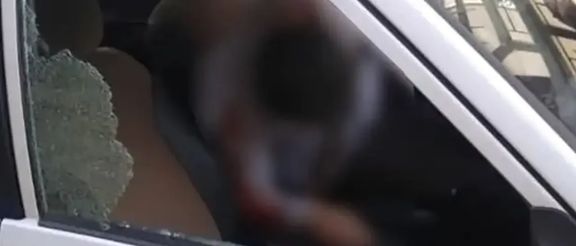
In May, an Israeli informed source told Iran International that security measures are tight around the Israeli embassy in the Indian capital New Delhi reportedly over a serious possibility of an attack by Iran-backed elements.
Late in May, President Ebrahim Raisi said Iran will “definitely” take revenge for the spectacular assassination of Revolutionary Guard Qods (Quds) Force colonel Hassan Sayyad-Khodaei in Tehran. Sayyad-Khodaei, who Israeli media say was the acting commander of an elite Qods Force unit, Unit 840, was shot dead behind the wheel of his car by two gunmen who fled the scene on a motorbike.
A few days later, Fars news website in Iran affiliated with the IRGC published an article profiling several Israeli businesspeople, using thinly veiled threatening language.
Moreover, conflicting reports are still circulating about the death of Iranian aerospace scientist Ayoob Entezari -- who held a PhD in mechanical and aerospace engineering -- with some calling it an assassination and government saying he died of food poisoning.
Reports about Entezari’s fate came a day after Iran confirmed the death of a colonel from the Quds Force, Ali Esmailzadeh of the Islamic Revolutionary Guard Corps. Iranian government and IRGC media said that Col. Esmailzadeh died “in an incident in recent days” at his home without mentioning any details after Iran International quoted sources in Iran as saying that the IRGC killed him over suspicions of espionage.
Last week, Israel issued a warning to citizens traveling or planning to travel to Turkey that they could be targeted by Iranian operatives seeking to avenge the recent assassination. The National Security Council explicitly identified “Iranian terrorist operatives” as being the source of the threat to Israelis in Turkey and nearby countries. Israel’s Channel 12 news reported on Sunday that Israel is considering expanding the travel warning to additional countries.
Early in May, a short audio recording was published by Israeli media with a photo of a man introduced as Iranian national Mansour Rasouli, 52. In the audio recording, Rasouli says he was sent to Turkey by the Revolutionary Guards (IRGC) to establish an operational network to assassinate an Israeli diplomat in Istanbul, a Germany-based US general, and a journalist in France.
Later in May, Israel’s security agency Shin Bet uncovered an alleged plot by Iranian intelligence to lure Israeli academics and former defense officials to travel abroad in order to kidnap them. The Iranian operatives used the stolen identities and relevant cover stories in an attempt to gather intelligence about Israelis and to invite them to locations abroad -- some under the guise of a conference -- in order to abduct or harm them.